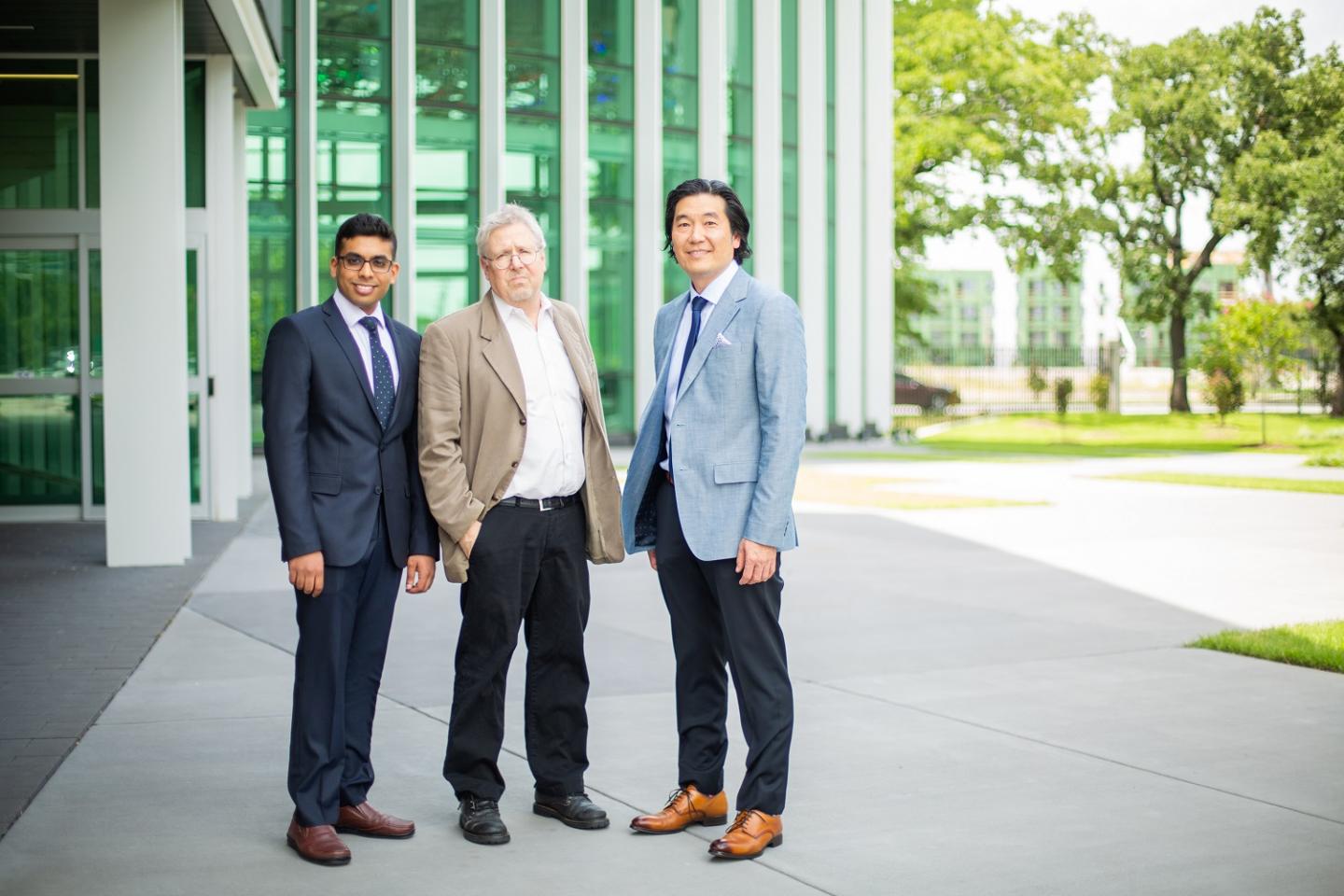Patent-pending tool creates 3D images of brain lesions

Credit: Center for BrainHealth
DALLAS (July 19, 2019) – Researchers at the Center for BrainHealth®, part of The University of Texas at Dallas, in collaboration with a team from UT Southwestern, have developed technology for a novel diagnostic method for multiple sclerosis (MS). The new approach has the potential to determine which damaged regions in an MS patient’s brain have the capacity to heal themselves, and which do not.
The researchers examined brain scans from 23 patients and 109 different lesions. Some lesions showed increased levels of surrounding oxygen, a biomarker that is known to correlate with the capacity for healing. The researchers then created 3D images of the lesions using a new, patent-pending technology tool, which revealed that the metabolically active lesions are more spherical with a rough surface, whereas the metabolically inactive lesions are irregular in shape and have a smooth surface. The results are published in the Journal of Neuroimaging (May 2019).
“This diagnostic method represents a significant advance in our field, considering the new MS drugs being developed to heal damaged areas of the brain,” said Dinesh Sivakolundu, the study’s lead author, and a teaching and doctoral student working in Dr. Bart Rypma’s lab at the Center for BrainHealth. “Using our new technology, we could potentially determine which patients would benefit from such new drugs and which patients would not.”
The lab of Dr. Darin T. Okuda, a neurologist and MS expert with UT Southwestern Medical Center, looked at the 3D lesion images and studied lesion phenotypes to uncover the relevant biomarker: a blood oxygen level dependent (BOLD) slope that compares the amount of oxygen available at the injury site to that of its surroundings.
As a result of the collaboration, the researchers were able to study MS physiology within and around lesions and its relationship to lesion physiology.
“Our new technology has the potential to be a game-changer in the treatment of MS by helping doctors be more precise in their treatment plans,” added Sivakolundu.
###
ABOUT THE CENTER FOR BRAINHEALTH®
The Center for BrainHealth®, part of The University of Texas at Dallas, is a research institute committed to enhancing, preserving and restoring brain health across the lifespan. Major research areas include the use of functional and structural neuroimaging techniques to better understand the neurobiology supporting cognition and emotion in health and disease. Its translational arm, the Brain Performance Institute, translates groundbreaking discoveries into
practical clinical application. By uncovering and delivering science-based innovations that enhance how people think, work and live, the Center and its Institute are empowering people of all ages to unlock their brain potential.
Media Contact
Kathryn Simmons
[email protected]
Original Source
https:/
Related Journal Article
http://dx.



